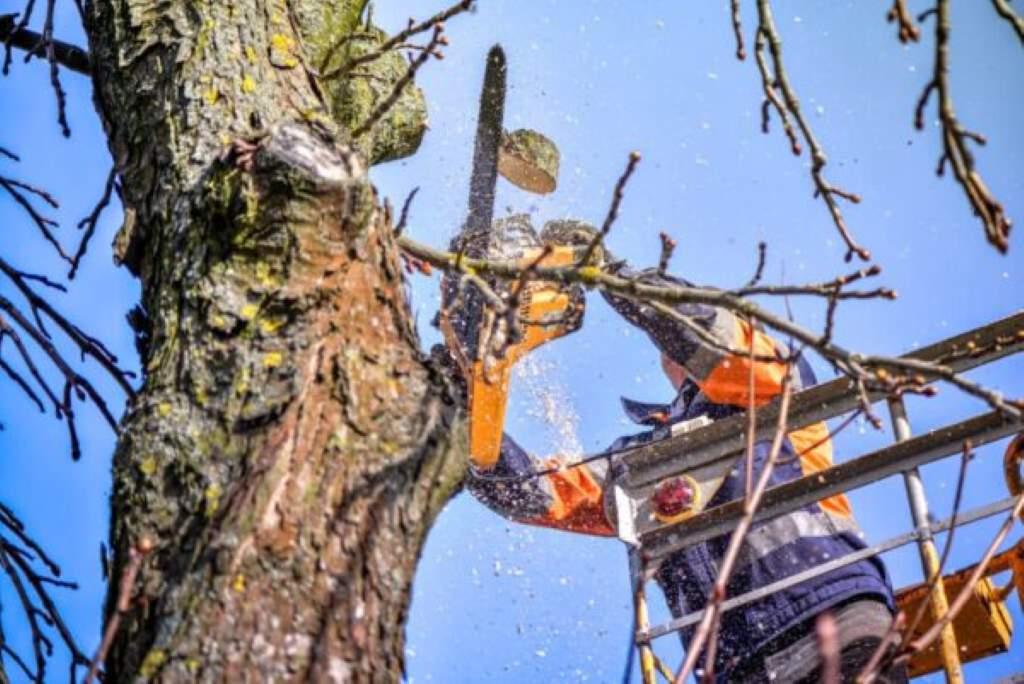Emergency Tree Removal: What To Do When a Tree Becomes a Threat

Storms don’t ask for permission before tearing through your neighborhood. One moment, your trees are standing tall, and the next—they’re leaning dangerously, split down the middle, or completely uprooted. When that happens, you need emergency tree removal, and you need it fast.
In this guide, we’ll break down what emergency tree removal involves, when it’s necessary, what it costs, and why calling in professionals is a must. Let’s get into it—because when nature strikes, every second counts.
What Is Emergency Tree Removal?
Emergency tree removal is the urgent removal of a tree or large branches that pose an immediate danger to people, property, or utilities. It’s not your average tree trimming—it’s a rapid response to a dangerous situation, usually following:
-
Severe storms
-
Heavy winds
-
Lightning strikes
-
Flooding or soil erosion
-
Sudden tree failure
If a tree’s about to fall—or already has—you’re dealing with an emergency.
Signs You Need Emergency Tree Removal
How do you know if a tree needs to go ASAP? Here are the red flags:
1. Leaning Heavily
A sudden, significant lean often signals root damage or instability.
2. Hanging or Broken Limbs
Large, partially detached limbs can crash down without warning.
3. Cracks in the Trunk
Deep splits or hollow sounds mean structural failure is likely.
4. Uprooted or Exposed Roots
The tree has lost its anchor. It’s just a matter of time before it falls.
5. Fallen Tree on a Structure
If a tree has collapsed on your house, garage, or power lines—it’s an emergency.
Common Causes of Tree Emergencies
Understanding what leads to emergency situations can help you prevent them in the future:
-
🌪️ Storm Damage: High winds and rain can snap limbs or uproot trees.
-
🌩️ Lightning Strikes: Can split a tree or cause internal burning.
-
🌊 Flooding or Soil Saturation: Weakens roots and causes toppling.
-
❄️ Heavy Snow or Ice: Puts dangerous weight on limbs.
-
🪲 Pests and Disease: Weaken the tree over time until it fails suddenly.
-
🏗️ Construction Damage: Cutting roots or compacting soil can destabilize trees.
Why Emergency Tree Removal Is Dangerous
Think you can DIY a fallen tree with your chainsaw? Think again. Emergency removals are risky and require professional expertise.
Here’s why:
-
⚠️ Unstable trees may collapse unpredictably
-
⚠️ Power lines could be live
-
⚠️ Heavy limbs can crush vehicles, roofs—or you
-
⚠️ Poor cutting techniques may worsen the hazard
Always call a certified arborist or professional tree service. They have the gear, training, and insurance to handle it safely.
The Emergency Tree Removal Process
1. Site Assessment
Pros quickly assess the risk and create a safe removal plan.
2. Securing the Area
They cordon off danger zones and notify authorities if power lines are involved.
3. Strategic Removal
Using ropes, cranes, and climbing gear, they safely cut and lower limbs.
4. Stump and Debris Cleanup
Some companies offer stump grinding and will remove debris too.
5. Post-removal Inspection
They’ll evaluate nearby trees and damage to prevent future issues.
What To Do Before Help Arrives
While waiting for emergency tree service:
-
🚫 Stay away from the tree
-
☎️ Call your utility company if lines are down
-
📸 Take pictures for insurance
-
🚧 Keep children and pets indoors
-
🧰 Do NOT attempt to cut or move anything yourself
Safety comes first. Don’t become a second emergency.
Cost of Emergency Tree Removal
Emergency jobs usually cost more than scheduled removals because of:
-
After-hours or weekend rates
-
Specialized equipment (like cranes)
-
Risk level and location
-
Tree size and complexity
Average cost:
-
Small tree: $300–$700
-
Medium tree: $700–$1,200
-
Large tree: $1,500–$3,000+
Your home insurance may cover part of the cost, especially if the tree damaged your house or property—check your policy.
Insurance and Emergency Tree Removal
When It’s Covered:
-
Tree damages a covered structure (like your home or garage)
-
Removal is necessary to access repairs
When It’s Not:
-
Tree falls in your yard without causing damage
-
Preventative pruning or removal
Pro tip: Call your insurer ASAP, take lots of photos, and keep all receipts.
Emergency Tree Removal vs. Regular Tree Removal
| Feature | Emergency Removal | Regular Removal |
|---|---|---|
| Urgency | Immediate | Scheduled |
| Cost | Higher | Lower |
| Risk Level | High | Moderate |
| Time to Plan | Minimal | Ample |
| Crew Availability | Limited/On-call | Pre-scheduled |
Bottom line: emergency tree removal is high-stakes and high-speed. Regular removal can wait—but this can’t.
Choosing the Right Emergency Tree Service
Don’t just Google “tree guy near me.” Look for:
-
✅ 24/7 availability
-
✅ Certified arborists on staff
-
✅ Liability insurance
-
✅ Experience with storm damage
-
✅ Positive reviews and testimonials
-
✅ Clear estimates and contracts
Emergency means you need help now—but don’t sacrifice safety or quality.
Preventing Tree Emergencies in the Future
The best emergency is the one that never happens. Here’s how to avoid future disasters:
-
✂️ Prune regularly to remove dead or weak limbs
-
👨🌾 Schedule annual tree inspections
-
🪵 Remove hazardous trees before they fall
-
💧 Ensure proper watering and soil care
-
🔎 Watch for signs of disease or pests
Healthy, well-maintained trees are far less likely to fail.
Conclusion
Emergency tree removal is no joke. When a tree turns from shade-giver to home-wrecker, time is critical, and safety is everything. Whether it’s a midnight storm or a mid-day collapse, knowing what to do—and who to call—can save lives and protect your property.
So remember: act fast, call professionals, document everything, and invest in preventative care. Your future self (and your home) will thank you.
FAQs
1. How quickly can emergency tree removal be done?
Most reputable companies offer 24/7 services and can respond within hours.
2. Will my insurance cover emergency tree removal?
If the tree damages a covered structure, yes. Always check with your provider.
3. Can I remove a tree myself in an emergency?
No. It’s too dangerous—always call a licensed professional.
4. What should I do if a tree hits my house?
Evacuate if necessary, call emergency services, then contact a tree removal company and your insurer.
5. Are all fallen trees emergencies?
Not always. If it’s not blocking anything or causing damage, it may not be urgent—but still call a pro to evaluate.








